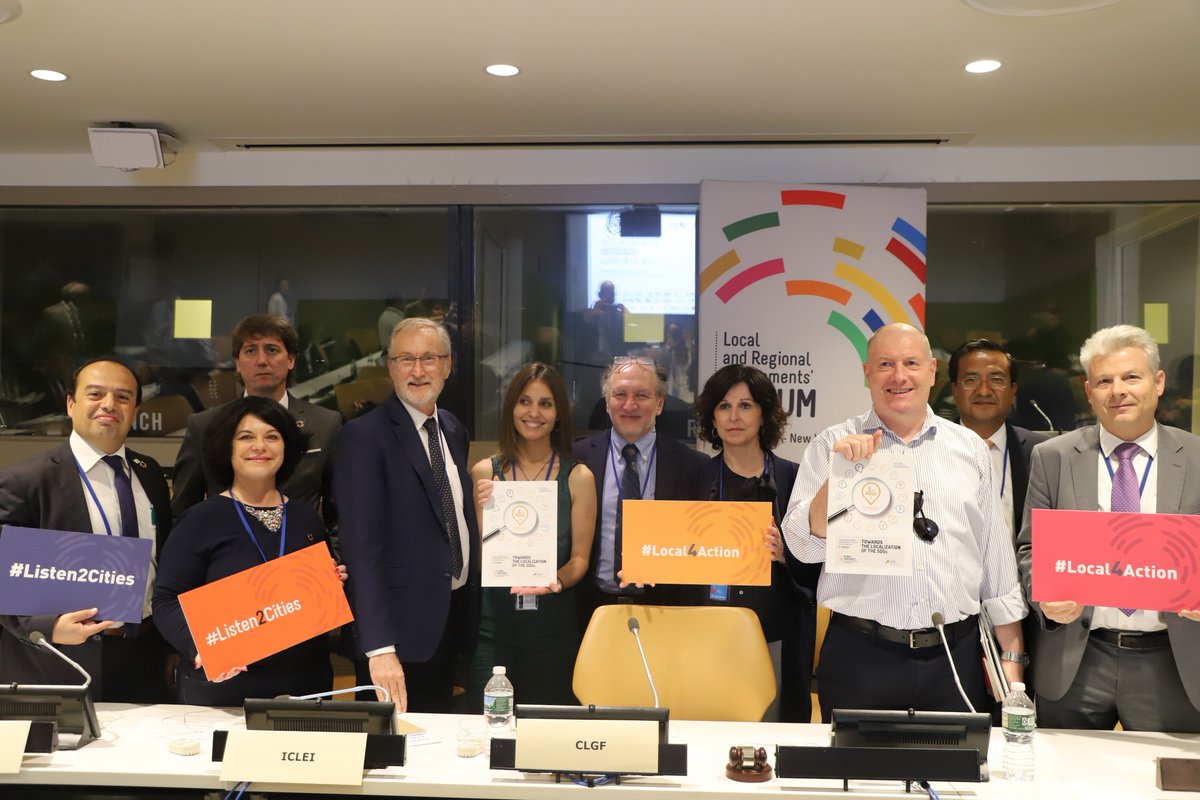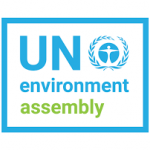
For the second year in a row, the Global Taskforce of Local and Regional Governments (GTF), facilitated by United Cities and Local Governments (ULCG) and the Global Observatory on Local Democracy and Decentralization (GOLD), has presented the report of the local and regional governments’ constituency on the Localization of the Sustainable Development Goals (SDGs) to the 2018 High-Level Political Forum (HLPF). The Report, Towards the Localization of the SDGs, aims to complement the information that UN member states provide to the High-Level Political Forum through their Voluntary National Reviews: it does so through a unique methodology that combines an extensive analysis of the VNRs, in-depth assessment of SDG implementation from the perspective of local governments, and a Survey – circulated to the membership of the GTF and UCLG – to collect first-hand information directly from local governments and their associations, exploring what they have been able to do to contribute to localization.
Thanks to the Report to the 2018 HLPF, the GTF and UCLG are now able to map LRG participation in the national VNRs and the implementation process over the last three years (2016-2018) in 99 countries. The results have been encouraging. In 2018, LRGs were involved in the preparation of VNRs in 53% (23/43) of the reporting countries (up from 43% in 2016-2017 combined). Since 2016, 39% of the LRGs surveyed in the process have acknowledged their participation in national institutional coordination mechanisms. This trend has been notable in Europe (57% of surveyed LRGs) and several other regions, such as Asia-Pacific (37%), Latin America (35%) and Africa (33%). There is still a long road ahead, however, to make local and regional governments really aware, participative and lead the localization process. In the Report, the GTF advances a set of recommendations to increase the centrality of LRGs in the reporting and implementing process, while voicing their needs and advocating for their unity in this global conversation: awareness raising, stronger implication in the VNRs, constructive self-assessment on local implementation policies, and better peer-to-peer knowledge and practice exchanges.
Collaboration between partners, essential to the preparation of the Report
What has been central to the preparation of the Report, however, was the strong collaboration among the members of the GTF, which provided unique vantage points, information, knowledge and best practices to the analysis of the SDGs that the 2018 HLPF has assessed. GTF members, international institutions and partners, UN agencies, all came together to support LRGs in their reporting effort. Thanks to inputs from C40, ICLEI, AIMF, UITP, ISWA, IIED, UNISDR and UCLG’s sections and committees, the Report offers a detailed analysis of the SDGs assessed this year, with a special focus on SDG 11 and its fundamental implications for urban life: issue of decent housing, the Right to the City, sustainable mobility, water and sanitation, and accessible and affordable services are at the core of the study, and prompted a necessary conversation at the HLPF with LRGs finally having a say.
What now? Towards HLPF 2019.
The Report was officially presented during the first Local and Regional Governments’ Forum, which took place within the 2018 HLPF in New York, on July 16, 2018, and then discussed in depth at a dedicated launching event at the UN Headquarters, on July 18. This side-event gathered the main co-contributors to the Report. The session was introduced by UCLG Secretary General, Emilia Saiz, who addressed the full room to highlight the dramatic improvement in the way LRGs have been acknowledged and included in this year’s HLPF. This momentum, Ms. Saiz stressed, needs to be cultivated and fuelled by integrated, parallel processes at the national level. The Report sets a precedent, and should be able to create even more expectation and elicit further participation from local and regional governments around the world.
Key contributors such as ICLEI, C40, and UITP presented their input, emphasizing how much of the report felt more than a simple publication but rather like an opportunity to show concrete, innovative and inclusive solutions to common problems. UN agencies such as UN-Habitat, UNDP and UNCDF also stressed that local governments’ contribution – as framed in the report – will also be essential to inspire better spaces and means of dialogue to implement the New Urban Agenda, achieve true localization of the SDGs, and re-think subnational financing and its contribution to development.
Representatives from LRGs took part in the event, emphasizing the importance of being part of such a global endeavour. The Survey, many mentioned, was an essential step, not only to collect information, but also to trigger an internal process of self-assessment which is hopefully going to improve the way LRGs conceive of the SDGs and integrate them into their local governance and strategizing. Valérie Dumontet, deputy President of the Aude Department in France and speaking on behalf of Cités unies France, acknowledged Nelson Mandela’s anniversary, by powerfully reminding the audience that “our best weapon is to sit down and talk together”.
According to Helena Hiniker, from the NYC Mayor’s Office, the report creates an unprecedented opportunity also for cities to monitor and report on themselves: this spirit of commitment underlies the Voluntary Local Report that New York and three Japanese municipalities cities debuted in various panels at the Local and Regional Governments’ Forum and the Local 2030 hub events.
The purpose of the Report was palpable in the aftermath of the event, as bilateral and group discussions continued among LRG representatives and global institutions on common solutions and joint initiatives. In the spirit of #Listen2Cities and the advocacy for a stronger role for LRGs in the realization of the development agendas, the GTF, UCLG and the GOLD Observatory now move on to the GOLD V report, which will be published in 2019: the contribution of the LRG constituency will be essential for the definitive guide to the localization process and an update on the status of decentralization and local government worldwide.
More information:
- Read the 2nd Edition of the "Towards the Localization of the SDGs" report here
- Contact the GOLD Observatory at: [email protected]

